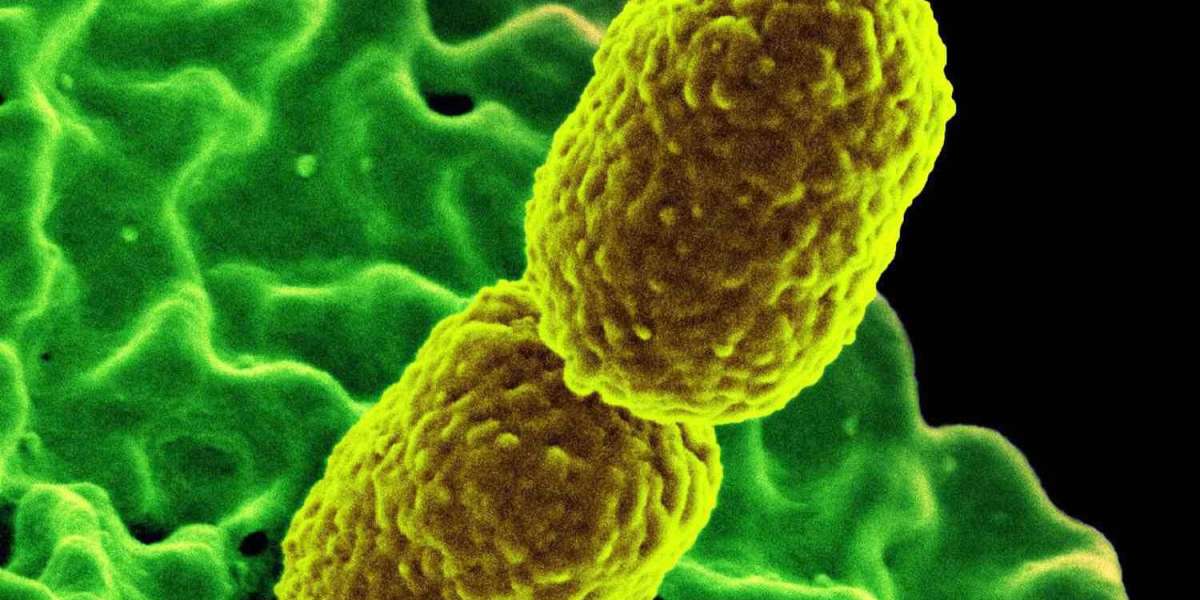Medical activities in the twenty-first century see an increasing threat of antibiotic-resistant "superbugs" including Klebsiella pneumoniae as a significant issue. With time these bacteria evolve to develop resistance to available drugs, hence regular treatment methods should be most common but these days have become most limited and unsuccessful. Nevertheless, the classical Indian holistic system of Ayurveda might present a sufficient alternative for those incurable cases of K. pneumoniae infections treatment.
Understanding Klebsiella pneumonia
- pneumonia, which belongs to the gram-negative microbe group, is a colonizer in human intestines as they normally reside. Usually, it doesn’t cause any harmful consequences in such an environment; however, it might present a significant problem when it goes off this setting and infects lungs, bloodstream, or surgical wound sites. Klebsiella infections may be classified into pneumonitis, meningitis, urinary tract infections, and suppurative cellulitis.
Very notable are some strains of K. pneumoniae that are resistant to carbapenems, referring to the carbon share present in these antibiotic groups which also mark them as remaining lines of defence. According to the CDC, these resistant "nightmare bacteria'' have limited treatment options left and death rates have also increased significantly when comparison is made to normal bacteria.
The Ayurvedic Perspective
From a classical Ayurvedic philosophy, and as per its principles, Klebsiella pneumoniae infections would likely get categorized in such a way as to be counted as a specific abnormality or impairment of Pitta elements, and water and fire elements. Such Pittavriddhi (aberrations in the constitutional balance of humour) arising from graham (stomach/digestive system) are believed to have emanated from here and have progressed later to other body areas based on involved doshas (bodily humour).
- pneumoniae being overgrown too much in the gut and the invasion of the single pathogens later on could be deducted following the Ayurvedic idea. Factors like genetic predisposition, consumption of antibiotics, hospitalization, low-nutritious diet, and decrease in digestive strength (agni) are supposedly forming environments which are favourable to the growth of harmful microbes thus conquering the body's defences.
Given the link between K. pneumoniae overgrowth in the gut and subsequent invasive infections, this Ayurvedic perspective carries certain logic.
Ayurvedic Treatment Approaches
While Ayurvedic medicine would never outright contradict the use of essential antibiotics for acute, life-threatening Klebsiella infections, it may offer a supportive, holistic approach to help strengthen the body's overall resistance. Some potential therapies include:
Herbal Antimicrobials
Certain Ayurvedic herbs like neem, turmeric, guduchi, and kutki have demonstrated in vitro anti-bacterial effects including against Klebsiella strains. These could be utilized to help manage intestinal Klebsiella colonization or potentially as complementary agents alongside conventional antibiotics.
Gut Flora Restoration
Prebiotics, probiotics, and practices like panchakarma detox may help restore proper microbiome balance in the gut, limiting the overgrowth of pathogens like Klebsiella. Improving agni and promoting strong digestion are also key focuses.
Immune Boosting Tonics
Best Cancer Hospital in Hyderabad opines that the use of ayurvedic remedies in tandem with chyavanprash, ashwagandha, amlaki, and the practice of particular yogic routines may strengthen the body’s natural immunity and thus help in combating Klebsiella and other types of infections.
Metabolic and Lifestyle Management
Since conditions like diabetes and obesity are linked to increased Klebsiella infection risk, Ayurveda's whole-body approach could help. Best Cancer Hospital in Bangalore opines that includes personalized diets, exercise routines, stress management, detoxification regimes, and other lifestyle modifications.
Individualized Constitution Assessment
By evaluating an individual's unique prakriti (mind-body constitution) and deviations (vikriti), Ayurvedic experts can determine customized treatments to best restore balance and strengthen resistance.
Prevention and Integration
Best Cancer Hospital in Hyderabad opines that while more clinical research is still needed regarding the Ayurvedic management of Klebsiella and other difficult infections, this traditional system offers a preventative, holistic perspective that may prove useful. An integrative approach utilizing the antimicrobial and immune-boosting aspects of Ayurveda could potentially provide an adjunct treatment strategy.
For patients suffering from stubborn or antibiotic-resistant Klebsiella infections, Ayurvedic medicine promotes treating root causes by reducing toxins, enhancing host resilience, and recreating an optimal environment where pathogens cannot overtake. In the era of the looming antibiotic resistance crisis, revisiting these ancient principles of achieving mind-body balance could yield complementary solutions for modern medical challenges.
While the appearance of antibiotic-resistant superbugs that Bailluliat K. pneumonia is a deadly threat to the medical systems on the Earth, at the same time Ayurvedic practices should be considered as a possible option as a complementary one. Ayurveda's way of eliminating toxins from the body which helps to boost immunity, restore the microbiome balance and create an inhospitable environment for overgrowth of the pathogens is much more helpful in fighting persistent infections because the body's power is strengthened by these processes.
This approach may be effective in the fight against multidrug-resistant microorganisms by stressing important anti-microbial herbs, the restoration of gut flora, the enhancement of the immune system, the management of metabolism and the individual mind-body healing process. With choices slowly becoming less, it may become a valuable support therapy exploring Ayurveda as well as the other traditional medical systems.
Although much still needs to be known, Ayurveda is an idea that has stood the test of time and seems to be the way to unlock the future.








